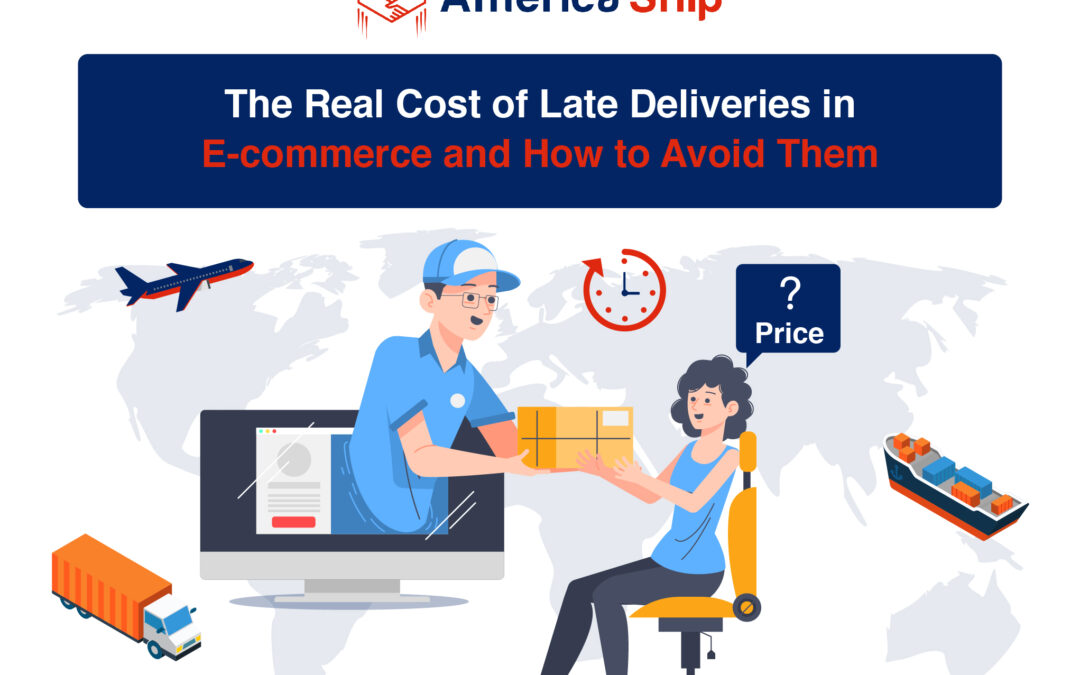Late deliveries in e-commerce can be more than just an inconvenience; they carry significant costs that affect a business’s bottom line, customer satisfaction, and overall reputation. To understand the full impact of late deliveries and how to prevent them, businesses must take a proactive approach to manage their logistics and customer relations effectively.
1. Financial Costs of Late Deliveries
Late deliveries can lead to various financial losses, starting with direct compensation costs such as refunds or discounts to appease dissatisfied customers. Additionally, they can escalate customer acquisition costs since customers who experience delays are less likely to return, forcing businesses to spend more on marketing and advertising to attract new customers. According to Circuit, the average cost of acquiring a new customer can be five times higher than retaining an existing one, making customer churn due to late deliveries particularly costly (Circuit) (Easyship)
Moreover, businesses may face increased operational costs due to the need to expedite delayed shipments or handle increased volumes of customer service inquiries. These costs accumulate and can significantly impact profitability, especially when late deliveries occur frequently or during peak shopping seasons (Easyship).
2. Impact on Customer Satisfaction and Brand Reputation
Customer satisfaction is closely tied to delivery performance. A survey from Loqate found that 41% of deliveries are delayed due to incorrect addresses, highlighting how small logistical errors can lead to significant dissatisfaction (Loqate)(Easyship). Late deliveries can also damage brand reputation; when customers are unhappy, they are more likely to leave negative reviews, which can deter potential new customers from purchasing. In fact, Lateshipment.com reports that up to 13% of customers will never shop again with a retailer after experiencing a late delivery (Lateshipment)
To mitigate these risks, companies should focus on enhancing delivery accuracy and transparency. Real-time tracking and proactive communication about potential delays help manage customer expectations and reduce dissatisfaction. Additionally, offering compensations like discounts, free shipping on future purchases, or loyalty points can help maintain customer trust and encourage repeat business (Easyship)
3. Operational Disruptions and Hidden Costs
Late deliveries often cause internal disruptions that lead to hidden costs. These disruptions can range from having to reschedule deliveries and handle increased storage needs, to managing a surge in customer service inquiries. Such inefficiencies reduce overall operational productivity and increase labor costs, further impacting a company’s financial health (ShipERP)
To address these challenges, businesses should consider leveraging technology. Tools like route optimization software can help carriers avoid delays by selecting the most efficient delivery paths, while inventory management systems can prevent stockouts that might lead to fulfillment delays. Predictive analytics can also help anticipate potential issues before they occur, allowing businesses to make necessary adjustments in advance (Circuit)
4. Strategies to Avoid Late Deliveries
- Optimize Logistics and Operations: Regularly auditing supply chain processes can identify bottlenecks and inefficiencies. Adjusting inventory levels based on demand forecasts, improving warehouse management, and streamlining fulfillment processes are all essential steps to avoid late deliveries (Easyship)
- Build Stronger Carrier Relationships: Strengthen your relationships with carriers by setting clear expectations and maintaining regular communication. Service level agreements (SLAs) that outline penalties for non-performance can help ensure carrier accountability. Additionally, diversifying your carrier options allows you to switch providers when necessary, minimizing the risk of service disruptions (Roundtrip.ai)
- Leverage Technology: Use logistics software that provides real-time tracking, route optimization, and automated customer notifications to keep everyone informed. These tools can enhance delivery reliability and minimize the impact of unexpected delays (ShipERP)
By understanding the real costs of late deliveries and implementing these preventive measures, businesses can protect their bottom line, maintain customer satisfaction, and enhance their competitive position in the market.
Works Cited
1. How to Fix and Avoid Late Deliveries. Easyship
2. The Real Cost of Late Deliveries & How to Deal with Them. Lateshipment
3. Delivery Problems: Common Causes and How to Avoid Them. Circuit
4. How to Navigate the High Costs of Delivery Delays. Roundtrip.ai
How to get started ?
All you need to do is create an account on our platform. Simply click here (https://america-ship.com/sign-up) and fill out the form to get started. If you need assistance or have any questions, feel free to reach out to us at customer.service@america-ship.com or give us a call at (956) 410-1188. We’re here to make your shipping process as smooth as possible.

